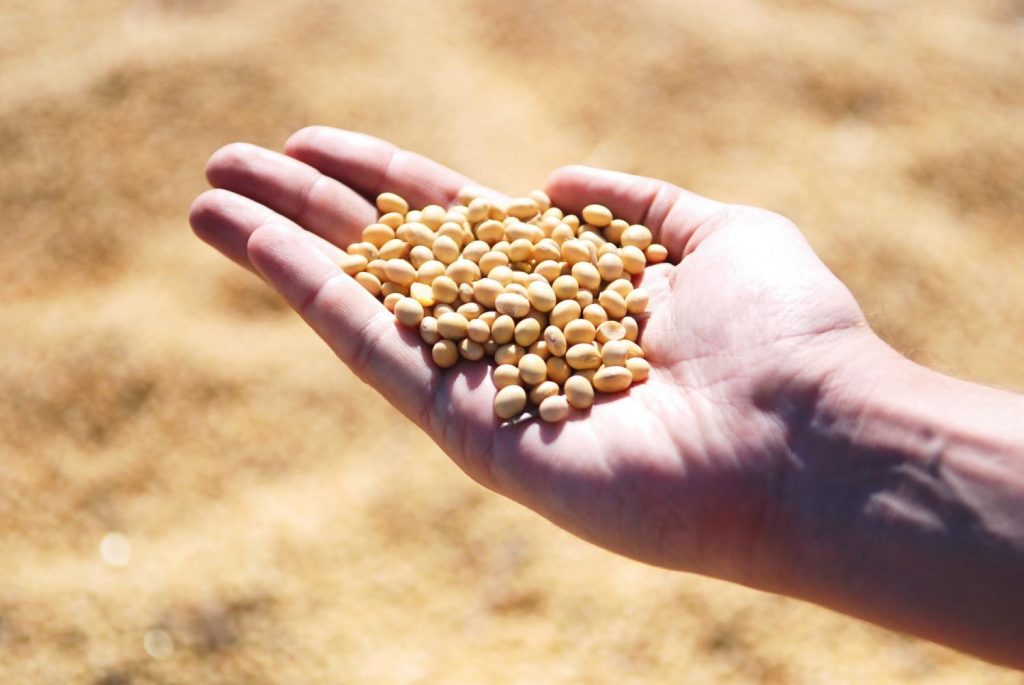Soy is a very controversial topic and always has been. Most people either stand on one end of the spectrum or the other, and finding trustworthy information about this plant has been a struggle for many who are simply trying to improve their overall health. Is soy really that terrible for your health or are there specific forms that can truly benefit your life?
Soy: A Healthy Source of Protein or A Harmful Dose of Hormones?
Concerns

The effects of soy have been studied since the early 1990s, yet new information is continually being found. Several studies in the past have shown that men who consume excessive amounts of soy could have issues with infertility, testosterone imbalance, and increased risks of certain types of cancer. As for women, excessive amounts of soy could potentially lead to infertility and have negative effects on one’s thyroid, as well as increased risks of cancer. All of this information has been linked to the higher levels of estrogen-like compounds, called isoflavones, that are found within soy. Although some findings suggest that isoflavones found in processed soy promotes the growth of cancer cells, moderate consumption of whole-soybean products still have great benefits.
Which Soy Products Are Beneficial?

Our Western Diet has made food more accessible, yet it oftentimes causes long-term harm. Several products we consume on a daily basis are highly-processed and provide minimal, if any, nutrition. But how is this connected to soy? Certainly an occasional snack from the corner store or premade meal can’t hurt… Yes, in the long run, an ‘every-once-in-a-while’ processed food item will do little to no harm. However, if you’re considering your overall health and longevity, it’s important to know where your food comes from and how it’s being made.
When thinking about soy, there’s two basic characteristics that lead people to thinking it’s healthy or not: is it fermented or is it processed?
Fermented Soy

Using the entire soybean plant in its most natural state is used in many diets across the globe. This cholesterol-free, low fat food is full of amino acids and is a great form of protein, no matter the diet. Fermented foods go through a process in which the natural bacteria feeds on sugar and starches naturally present. This process creates beneficial enzymes, b-vitamins, Omega-3 fatty acids, and several types of probiotics. Fermented foods are great for improving gut health, too.
All of these benefits, as well as healthy amounts of fiber, can be found within fermented soy. Traditional Asian eaters consume easily digestible fermented soy products, such as tofu, miso, tamari, tempeh, edamame, and soy sauce. All of these products can be found at your local health food stores.
Processed Soy Products

Because of our active, on-the-go lifestyles, taking time to really look what’s in our food is often forgotten. Most of the products sold on our grocery store shelves contain ingredients that can be harmful to our overall health. Things like pre-packaged baked goods, candies, sugary cereals, energy bars, and even vegan meat substitutes contain processed soy. Occasionally consuming these products will most likely not cause harm, but overconsumption could be another story.
The majority of soy products come from genetically modified soybeans that have been sprayed with pesticides. Not only are people consuming these chemicals daily, but our animals in the meat and dairy industry are, too. Soy is at an all-time low when it comes to cost, and farmers have found that it’s cheaper and easily accessible. The great harm in this is that the pesticides used on these genetically modified soybeans is ingested through the animal industry and is passed through their meat and dairy products. These genetically modified soybeans also affect the vegetation where future growth occurs.
Mindful Thinking

Ultimately, there’s tons of information available, but it’s completely up to personal choice when it comes to soy. It’s important to know where your food comes from and how it’s prepared or even processed. Check the ingredients on packaging, ask questions at restaurants about how their soy products are prepared, and opt-out of highly processed foods. Replacing animal foods with plant foods like soy lowers one’s saturated fat intake and ups fiber intake, which is great for the heart. Keep your food as close to nature as possible and consume within reasonable quantities. Now that’s a ‘heart-smart’ move!
Image credit: Phys | Eco-Minded | Huffington Post


